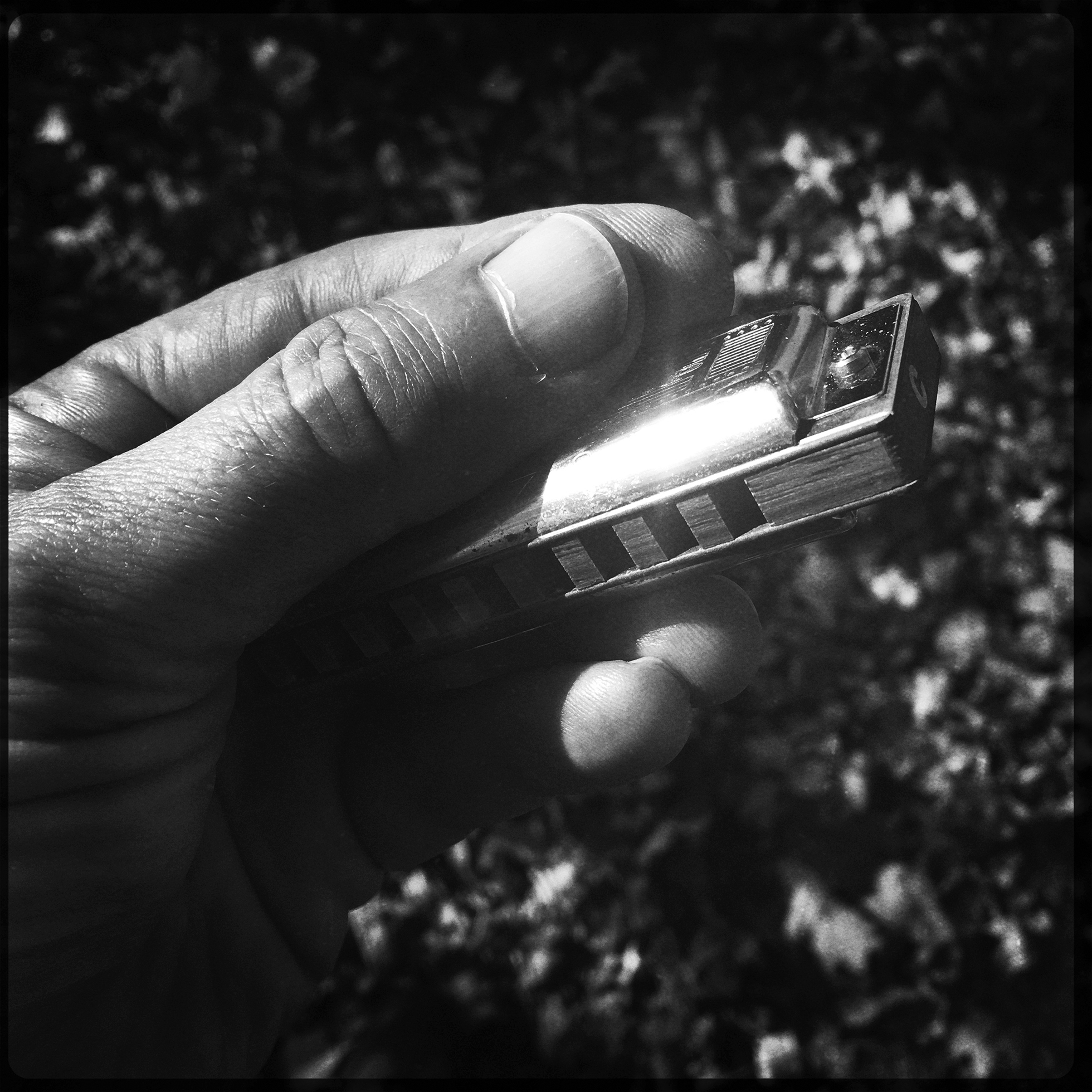Many years ago my younger brother and I visited Sonny Boy Williamson’s grave. A fellow security guard at the Isabella Stewart Gardner Museum in Boston told me one night in the break room that if I ever passed through Mississippi, I should track it down. And that summer Tommy and I did. We were driving across the country from Los Angeles to Boston, and on the way we visited the old bluesman’s tomb.
As advised, we asked directions at the gas station in the tiny town of Tutwiler. Go out toward the church, the woman there said, turn down this road, then turn down that . . . We did as we were told and soon found ourselves parked on a country lane in the middle of the day, in the middle of July, insects bleating so loud you could almost reach out and feel the sound with your hands. It was farm country islanded with woods, and I remember a trim house nearby with a big rig parked out front — the only house for miles. Pinwheels spun silver on the lawn. As directed by the woman at the station, we crossed over an irrigation ditch, waded through the grass, and headed toward the trees.
Sonny Boy Williamson. I didn’t know his music well, but I’d heard a handful of songs on a blues compilation I’d checked out from the Medford Public Library. And I loved his music as I loved all the old blues songs I listened to then. Sonny Boy had something of the court jester in him. I could see it in his face from a photograph in the liner notes: rascally, mock-patrician, life-beaten, the sidelong squint of the born entertainer. And that he knew and played with Howlin’ Wolf, Robert Johnson, and Elmore James made him part of an American-music aristocracy.
We enter the trees and begin pushing aside branches with our hands. The plant life grows thick, and walking fifty feet is arduous. I feel a bolt of sad, unspecific panic when I look back for our olive-green Isuzu Trooper and can’t find it. But on we go.
After twenty minutes of bushwhacking, I decide we pulled over at the wrong place. We should’ve gone farther down the road. But Tommy says to just keep going. Before us lies a wall of foliage and behind us the same. We’ve been swallowed. High overhead a warm wind moves the tops of the large summer trees.
Soon we notice we’re stepping on things. Hard things. I look down through the grass and see glints of silver but don’t really think much about it. Scraps of old Coke cans, I assume. Trash. And onward we trek, relieved to enter a little clearing.
In a clearing in the woods alongside a country lane outside the town of Tutwiler in Tallahatchie County, Mississippi, stands Sonny Boy Williamson’s granite grave marker. As we approach, we notice more of the glints beneath us, and notice the same silver glints piled atop the old monument.
Harmonicas. Harmonicas everywhere. Some long, some short. Some rusting, some brand-new. Harmonicas brought in honor of one of the great players, brought like offerings to a god.
It can be horrid not to know what this life is, to know we are to do this thing called “dying.” And my daughters — to know that each will go on that journey. What is one to say about that? What can one possibly say? I only hope — hope of all hopes, wish of all wishes — they know everything will be with them.
And still I see the smile of my younger brother as he picks up a harp from the grass.
He is shirtless, nineteen years old, his torso skinny and muscled, all kempt animal beauty. Veins run down brown, thick-wristed arms. Leaf shadow trembles on a thin gold necklace.
Can you fucking believe this, he says, not a question but an exclamation.
High overhead the large summer trees move in a wind.





